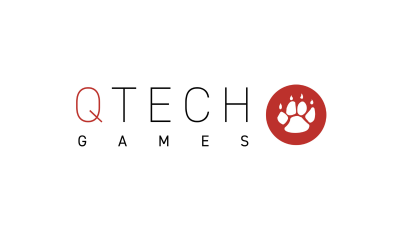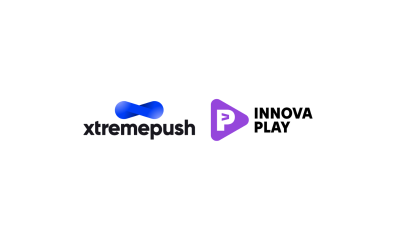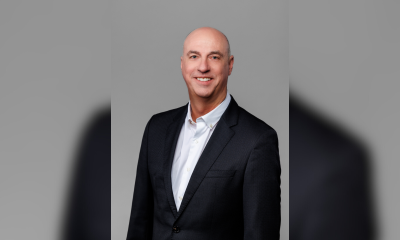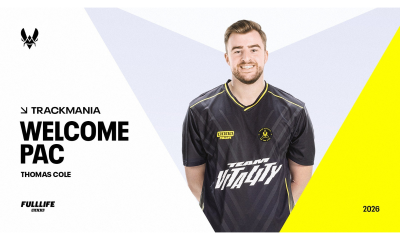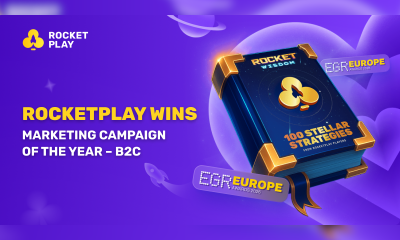Industry News
How European Tax Changes Are Reshaping iGaming Media Budgets in 2025
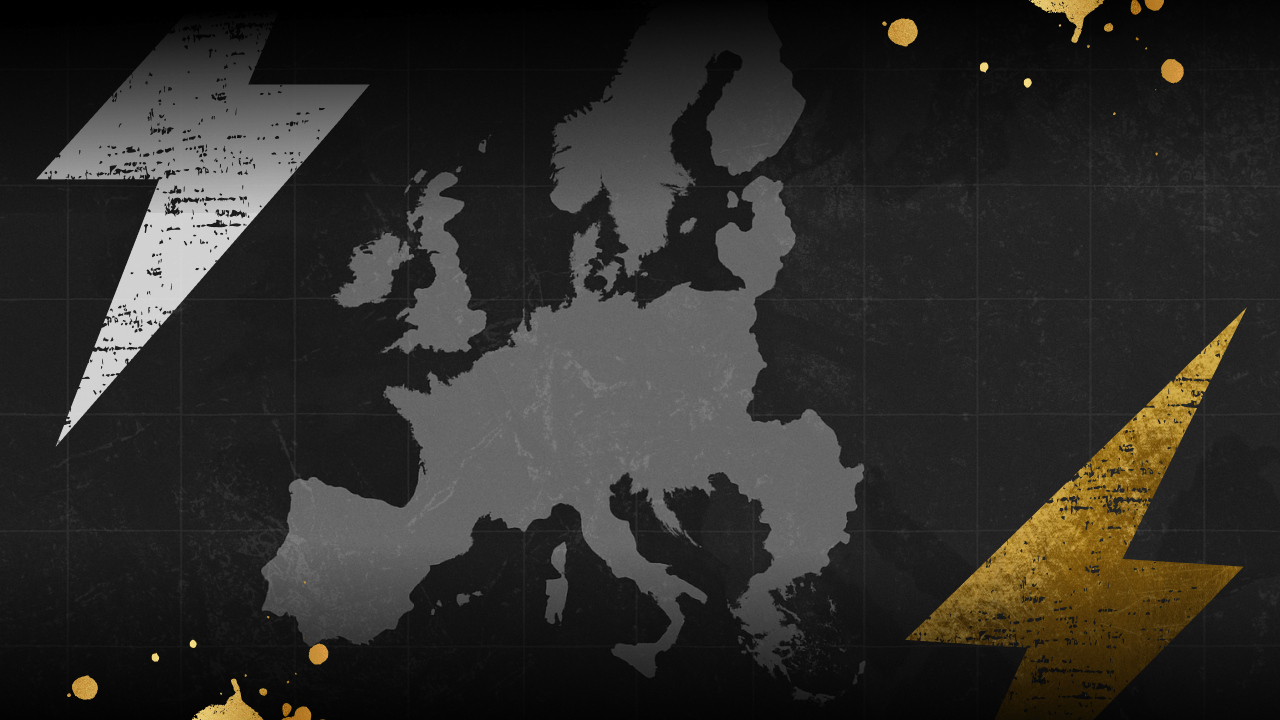
Throughout 2025, European iGaming markets have faced a new layer of complexity: shifting tax and licensing rules that directly impact marketing costs. Governments continue to increase gross gaming revenue (GGR) tax rates and impose stricter reporting standards.
As of July 2025, these changes have become a critical factor in how operators and agencies plan, distribute, and optimize user acquisition budgets. RockApp analysis indicates that tax policy is fundamentally reshaping the planning process for performance marketing across Europe.
European Tax Environment in 2025
Several major European markets have introduced or expanded gambling tax rules over the last 18 months:
- Germany: GGR tax increased from 5.3% to 7% in mid-2024. By Q2 2025, operators are recalibrating CPA targets and revising bonus strategies to preserve margin.
- Netherlands: New compliance requirements implemented in January 2025 include enhanced KYC/AML reporting, adding operational costs and slowing onboarding funnels.
- Eastern Europe: Romania and Poland are reviewing GGR tax bands, with planned 1–2% increases included in government budgets for H2 2025.
These changes raise per-user acquisition costs and reduce flexibility on pricing incentives. Media buyers now need to plan budgets and creative strategy with greater precision to maintain efficiency.
RockApp data, drawn from over 120 active campaigns in 2025, demonstrates how these pressures translate into real shifts in buying behavior and budget allocation.
Budget Impact on Media Buying Strategies
Analysis of campaign performance in 2025 reveals several clear trends:
- Shift to Tier-2 GEOs: Markets with lower tax pressure (such as CIS, Balkans, and LATAM) are seeing 30-40% more acquisition budget allocation compared to 2023.
- CPA Adjustments: Average first-time-depositor CPA in regulated Western European markets has risen from ~€120 in 2023 to €145–160 in 2025, driven by increased taxation and competitive auction dynamics.
- Creative Cost Pressures: Bonus-focused creatives now demand tighter payout modeling to balance user appeal with higher GGR liabilities.
As a result, buying strategies have moved away from broad, high-volume campaigns toward segmented, CPA-focused plans with more granular GEO targeting.
Budget Impact on Media Buying Strategies
Tax policy changes don’t just influence operator balance sheets. They force a recalibration of the entire media buying strategy.
RockApp data from over 120 active campaigns in 2025 shows clear budget trends:
- Shift to Tier-2 GEOs: Markets with lower tax pressure (e.g., CIS, Balkans, LATAM) now see 30-40% more acquisition budget allocation compared to 2023.
- CPA Adjustment: Average first-time-depositor CPA in regulated Western Europe has climbed from €120 in 2023 to €145-160 in 2025, driven by both taxation and competitive auction prices.
- Creative Cost Pressure: Bonus-focused creatives need tighter payout modelling, balancing marketing appeal with GGR realities.
For media teams, the result is a move away from broad, high-volume campaigns toward precisely segmented, CPA-optimized buying with robust GEO-targeting logic.
GEO Diversification as Strategic Response
For many brands, geo diversification has become the simplest and most effective hedge against rising tax costs.
According to Appsflyer’s mid-2025 install cost benchmarks, CPIs in markets such as Brazil, India, and select African countries remain stable or are falling – averaging $0.60–$1.20 per pre-install, compared to $3+ in Western Europe.
RockApp’s planning data shows clear reallocation trends:
- LATAM budgets up ~35% year over year.
- Eastern Europe spending stable, with modest CPA increases.
- Western Europe budgets flattening or declining, with more investment going toward targeted retargeting and high-value lookalike segments.
Diversifying GEO strategy is emerging as a necessary planning approach to balance premium Tier-1 acquisition costs with Tier-2 scale opportunities.
Tactical Media Buying Adjustments in 2025
In response to new taxation and compliance demands, advertisers are refining their acquisition tactics. Effective strategies seen across European campaigns this year include:
- Hyper-segmentation: Adapting CPA targets at the micro-GEO, channel, and audience level.
- Creative Flexibility: Developing multiple bonus tiers and transparent CTAs designed for localized regulations.
- Source Tiering: Prioritizing verified, high-retention traffic sources over pure volume channels.
- Automated Bidding Rules: Aligning bid pacing and budget allocation with region-specific margin goals and user lifetime value curves.
RockApp analysis suggests that these shifts are helping operators maintain acquisition efficiency in the face of rising costs and regulatory complexity.
Advice for Q3 and Q4 Planning
With peak acquisition season approaching, several planning considerations stand out:
- Leverage Q3’s traditionally lower competition to test new channels and creative variations cost-effectively.
- Prepare Q4 budgets for elevated CPA levels, using segmented bidding strategies and clear ROI targets.
- Integrate compliance checks and fraud-control measures early in creative production to avoid approval delays and wasted spend.
RockApp data indicates that campaigns investing in upfront planning and testing see more stable CPA performance even in high-demand periods.
Conclusion
European tax changes have become a defining variable in iGaming growth strategy. These aren’t simply operational details – they now shape how marketing teams approach channel selection, creative design, and budget allocation at the most fundamental level.
RockApp continues to monitor these shifts across campaigns and regions, helping operators and agencies adapt media buying systems to maintain acquisition efficiency in a more complex regulatory environment.
The post How European Tax Changes Are Reshaping iGaming Media Budgets in 2025 appeared first on European Gaming Industry News.
Celia Verot
FDJ UNITED Announces Changes to its Executive Committee
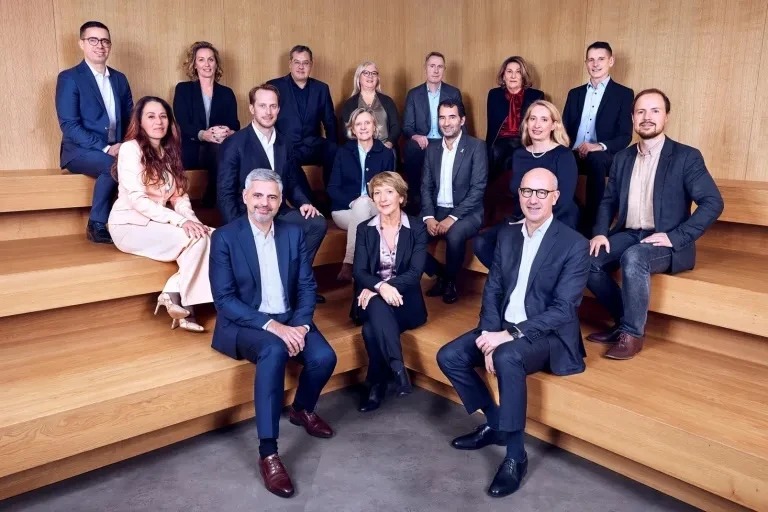
FDJ UNITED makes changes to its Executive Committee, with the appointment of Pascal Chaffard as Chief Online Betting and Gaming Officer as well as Group Strategy and Operational Transformation Officer, and Celia Verot as General Secretary.
Currently Chief Financial Officer, Strategy and Performance leader, Pascal Chaffard is taking over as head of the Online Betting and Gaming business unit. Pascal Chaffard will also be responsible for the Group’s strategy and operational transformation.
As Chief Online Betting and Gaming Officer, Nils Andén has overseen Kindred’s integration into the Group since October 2024; he is leaving the company to pursue new projects.
The appointment of the new CFO will be announced at the end of the recruitment process currently under way.
In addition, Celia Verot, who joined FDJ UNITED in 2024 as Chief Regulatory Officer, was appointed General Secretary, General Counsel and Chief Regulatory Officer for the Group on 1 January.
The post FDJ UNITED Announces Changes to its Executive Committee appeared first on Eastern European Gaming | Global iGaming & Tech Intelligence Hub.
Industry News
Novig Raises $75M Series B to Build a Trader-First Sports Prediction Market
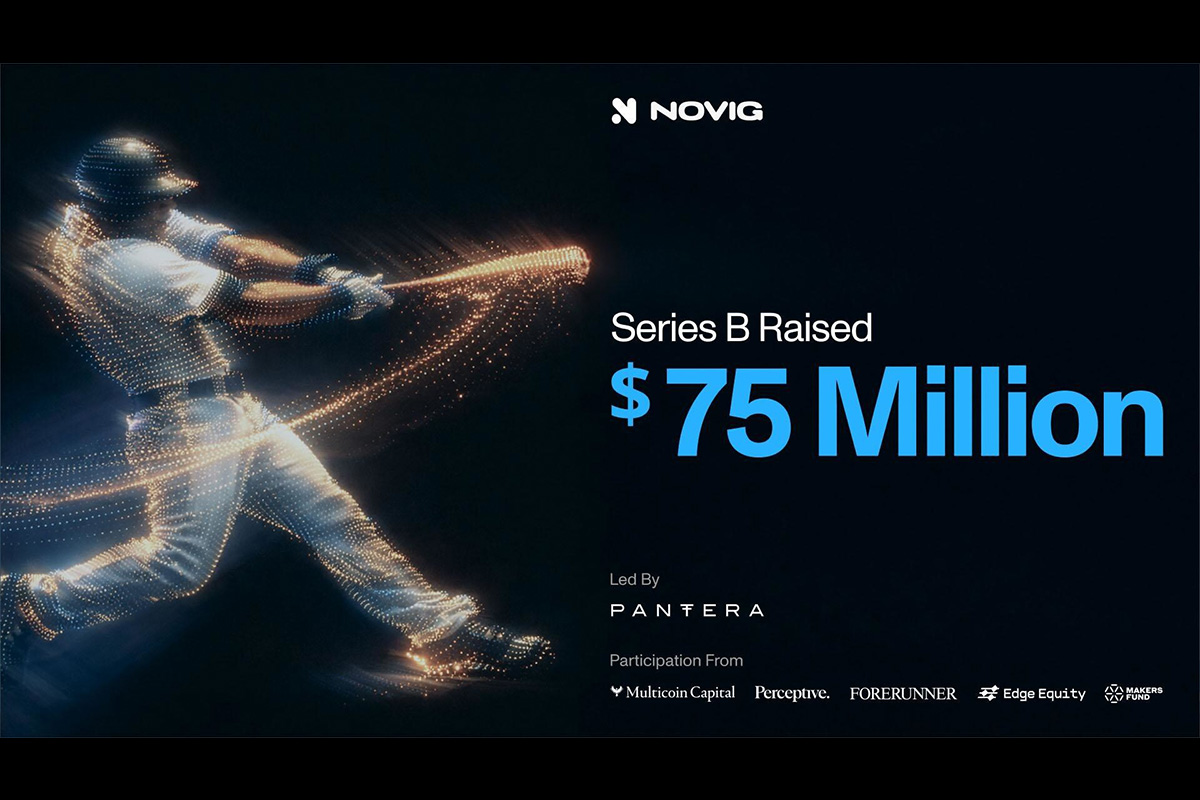
Novig, the fastest growing sports trading platform in America, announced the close of a $75 million Series B round led by Pantera Capital, with participation from Multicoin Capital, Makers Fund, Edge Equity, and existing investors Forerunner, Perceptive Ventures, and NFX. The round brings Novig’s total capital raised to more than $105 million.
The funding follows a period of growth for the platform, which reported a 10x increase in trading volume during 2025. Novig’s annualized trading volume currently exceeds $4 billion.
Although sports account for the majority of activity on most prediction market platforms, those products are not built with sports traders in mind. Novig, by contrast, is built for sports fans, delivering a fair, transparent, and commission-free trading experience.
Since launch, the platform has rapidly emerged as the leading sports trading platform in the US, proving strong demand for a trader-first alternative to traditional sportsbooks. Novig has officially submitted its application to the Commodity Futures Trading Commission (CFTC) to become a licensed Designated Contract Market (DCM), a critical milestone in its transition toward becoming a federally regulated exchange available in all 50 states.
Unlike sportsbooks that operate an against-the-house model, Novig operates a commission-free, peer-to-peer exchange where traders compete against one another on a level playing field. By eliminating the hidden “vig,” unfair odds, and punitive limits on winning players, Novig has built the industry’s most equitable sports prediction platform.
“Our mission is to democratize and financialize sports markets, and we’re proud of the fact that Novig users are 10 times more likely to win than on traditional sportsbooks,” said Jacob Fortinsky, Co-Founder and CEO of Novig.
“We chose to partner with the best crypto venture firms in the world to further accelerate our plans to make Novig the most efficient and liquid sports prediction market in the world. Others are using prediction market technology to financialize new markets with unproven demand. We leverage it to fix broken markets where demand already exists.”
“Novig is proving that prediction markets can fundamentally reshape sports betting by removing the exploitative middleman,” said Paul Veradittakit, Managing Partner at Pantera Capital.
“Their peer-to-peer exchange delivers what traditional sportsbooks can’t: better odds, fairer market structure, and alignment between platform success and user profitability. When 23% of users are profitable compared to 2% on traditional platforms, it’s clear this is a foundational change to the industry. We’re excited to lead this round and support Jacob, Kelechi, and the team as they build a sports prediction market that actually puts bettors first.”
“Novig combines the cultural heartbeat of sports with the transparency and efficiency of prediction markets. Most prediction market volume today is on sports, yet those platforms weren’t built with sports or sports bettors in mind. We are delivering a better exchange that is built by sports traders, for sports traders,” said Co-Founder and CTO Kelechi Ukah.
The new capital accelerates Novig’s next phase of growth, including onboarding more institutional liquidity. Novig will utilize the investment to deepen product innovation and growth loops, launching first-of-its-kind functionality that combines the best innovation of financial markets with the excitement of live sports.
To support its next phase of growth, Novig has expanded its team to more than 50 personnel, including operators, engineers, and traders focused on developing the platform’s prediction market infrastructure and transparency features.
The post Novig Raises $75M Series B to Build a Trader-First Sports Prediction Market appeared first on Americas iGaming & Sports Betting News.
Gaming Laboratories International
GLI Promotes Patrick Cottingham to Director of Client Services, North America

Gaming Laboratories International (GLI) has promoted Patrick Cottingham to Director of Client Services, North America. Previously, he served as Senior Manager of Client Services. Prior to commencing his career as an engineer with GLI, he served with the US Air Force.
Cottingham’s dedication to his clients was clearly evident both inside and outside of GLI. He transitioned to the Client Services team where he progressed and built a team laser focused on providing the very best customer service where his and his team’s clients have benefited from his engineering and gaming experience.
Ian Hughes, GLI Chief Revenue Officer, said: “We are thrilled to announce Patrick’s well-deserved promotion to Director of Client Services for North America. Patrick leads a team of dedicated and committed client services representatives who ensure our clients receive the best service during their compliance journey with GLI.”
The post GLI Promotes Patrick Cottingham to Director of Client Services, North America appeared first on Americas iGaming & Sports Betting News.
-

 Latest News7 days ago
Latest News7 days agoTRUEiGTECH Unveils Enterprise-Grade Prediction Market Platform for Operators
-

 Blueprint Gaming5 days ago
Blueprint Gaming5 days agoBlueprint Gaming unleashes Frankenstein’s Fortune blending dynamic modifiers with multi-path bonus offering
-

 Compliance Updates6 days ago
Compliance Updates6 days agoHow to Apply for a Finnish iGaming License: Gaming in Finland Webinar on Application Steps and Technical Standards
-

 Big Daddy Gaming6 days ago
Big Daddy Gaming6 days agoBig Daddy Gaming® Expands European Footprint After MGA Licence Approval
-

 Latest News4 days ago
Latest News4 days agoGGBET UA hosts Media Game – an open FC Dynamo Kyiv training session with journalists from sports publications
-

 Compliance Updates5 days ago
Compliance Updates5 days agoMGA Publishes Results of Thematic Review on Self-exclusion Practices in Online Gaming Sector
-

 Latest News4 days ago
Latest News4 days agoRocketPlay won European Marketing Campaign of the Year – B2C at the 2026 EGR Europe Awards
-

 Dan Brown5 days ago
Dan Brown5 days agoGames Global and Foxium return to the Colosseum in Rome Fight for Gold the Tiger’s Rage™



